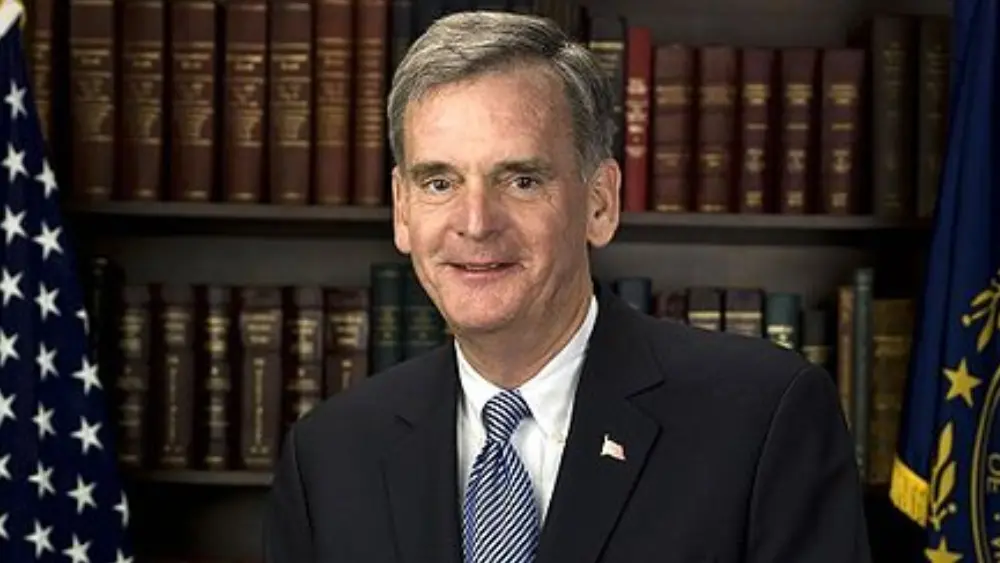Judd Alan Gregg, a dedicated public servant and respected statesman, is best known for his distinguished career in the United States Senate. Born on February 14, 1947, in Nashua, New Hampshire, Gregg’s life was marked by his unwavering commitment to the state of New Hampshire and his service to the nation.
Early Life and Education
Judd Gregg’s early life and education laid the foundation for his remarkable career in public service. Gregg’s family, with a rich history of civic engagement, instilled in him a deep sense of duty to his community and country from birth. His educational journey began at Phillips Exeter Academy, a prestigious institution known for its rigorous academic standards and emphasis on character development. Here, Gregg honed his intellect and leadership skills, preparing himself for a future dedicated to public service.
After completing his secondary education, Judd Gregg pursued higher studies at Harvard University, where he earned a law degree. Harvard’s esteemed law program provided him with the necessary legal expertise and analytical prowess that would prove invaluable throughout his career. This educational background equipped Gregg with the knowledge and skills he needed to navigate the complex world of politics and policymaking, setting him on a path towards becoming a distinguished figure in American government and public service.
Judd Gregg: Entry into Politics
Judd Gregg’s entry into politics marked the start of a remarkable journey that would see him become a prominent figure in the American government. He took his first steps in the political arena at the state level, initially serving as a member of the Executive Council of New Hampshire. In this capacity, Gregg played a vital role in overseeing and approving various state expenditures and appointments, gaining valuable experience in governance and decision-making. His dedication and commitment to public service quickly became evident, setting the stage for his rise in New Hampshire politics.
Gregg’s political ascent continued when he assumed the role of Governor of New Hampshire. As the state’s chief executive, he faced the challenges and responsibilities of leading a state government and working to address the diverse needs of its citizens. His tenure as governor showcased his leadership abilities and his ability to bridge political divides, earning him respect and admiration from both sides of the aisle. These early experiences in state politics would serve as a strong foundation for Judd Gregg’s future career in national politics, where he would go on to make significant contributions to the United States Senate and federal policymaking.
U.S. Senate Election
In 1993, Judd Gregg’s political career soared as he was elected as New Hampshire’s U.S. Senate representative. His successful bid for a Senate seat reflected his appeal to voters and the resonance of his pragmatic and fiscally conservative approach to governance. Throughout his tenure in the Senate, Gregg consistently prioritized responsible fiscal policies and a commitment to limited government intervention, values that closely aligned with the preferences of many New Hampshire constituents.
As a Senator, Gregg distinguished himself as a thoughtful and principled legislator, working across the aisle to find common ground on critical issues. His ability to build coalitions and seek bipartisan solutions earned him a reputation as a pragmatic statesman, and he was often called upon to serve in leadership roles within the Senate. His election to the U.S. Senate marked the continuation of a distinguished career in public service. There, he made lasting contributions to national policy discussions and played a key role in shaping the direction of the country.
Judd Gregg: Committee Assignments and Legislative Impact
Judd Gregg’s impactful career in the United States Senate was significantly defined by his committee assignments and legislative contributions. During his Senate tenure, Gregg served on influential committees, notably the Budget and Appropriations Committees. On the Budget Committee, he shaped fiscal policy, demonstrating a commitment to fiscal responsibility and prudent budgeting for the nation. As Budget Committee chair, his expertise and dedication crafted critical budget frameworks addressing national priorities with fiscal discipline.
Gregg’s influence extended to the Appropriations Committee, where he had the opportunity to shape government spending and appropriations. His meticulous budget crafting and government funding expertise earned him respect as a Senate voice. He marked his legislative impact with a commitment to bipartisanship and a pragmatic approach to problem-solving. Gregg’s tenure on influential committees had a lasting impact on U.S. fiscal policies, playing a key role in shaping the nation’s governance.
Bipartisanship and Leadership
Judd Gregg’s political legacy is deeply rooted in his commitment to bipartisanship and exceptional leadership abilities. In the U.S. Senate, Gregg fostered bipartisanship, building alliances and seeking common ground to address critical national issues. His pragmatic, collaborative governance earned respect from colleagues on both sides, making him a bridge-builder in a divisive political landscape.
In addition to his reputation as a bipartisan statesman, Judd Gregg also held prominent leadership positions during his Senate tenure. As Chairman of the Senate Committee, he profoundly influenced U.S. policies on healthcare, education, and labor. His leadership in this capacity allowed him to influence legislation that directly affected the lives of millions of Americans. Gregg’s dedication to practical solutions and navigating complex policy made him a respected bipartisan leader in the Senate.
Judd Gregg: Focus on Fiscal Responsibility
Judd Gregg’s enduring legacy in the United States Senate revolves prominently around his unwavering commitment to fiscal responsibility. Throughout his distinguished Senate career, Gregg consistently championed the cause of balanced budgets and prudent fiscal policies. His advocacy for responsible spending and fiscal sustainability resonated with constituents and earned admiration from conservatives nationwide. A fiscal responsibility advocate, he worked tirelessly to address the nation’s growing debt through legislative efforts and concern.
Gregg didn’t just talk about fiscal responsibility; he actively advanced these principles through substantive actions. Through his Budget Committee role, appropriations contributions, and crafting budgets, he tirelessly ensured the federal government operated within its means. Through his leadership and financial discipline, he significantly influenced the national conversation on fiscal policy. He also reinforced the importance of budgetary responsibility in the U.S.
Withdrawal from Consideration as Commerce Secretary
In 2009, Judd Gregg’s nomination for Secretary of Commerce under President Obama drew attention but ended in withdrawal. Though surprising, it showed Obama’s intent to include diverse viewpoints, reaching across party lines for key positions. Gregg’s withdrawal underscored policy differences, notably on economic stimulus and government spending, with the administration. His withdrawal highlighted principled differences in American politics and reminded me of the complexities of forming bipartisan cabinets.
Gregg’s withdrawal highlighted the alignment between nominees and an administration’s policy goals in Cabinet selections. In this case, Gregg’s fiscal conservatism clashed with the Obama administration’s plans for economic stimulus and increased government spending. The withdrawal revealed political divergence but also highlighted the value of transparency and conviction in individuals’ political service.

Judd Gregg: Retirement and Post-Senate Career
Judd Gregg’s 2010 Senate retirement concluded a decades-long, illustrious career in public office. During his Senate tenure, Gregg championed fiscal responsibility and bipartisan cooperation, leaving a lasting legacy of pragmatic leadership. After retiring, he entered the financial sector, held diverse roles, and maintained sought-after expertise in economics and finance.
Despite leaving the Senate, Judd Gregg remained an influential voice in American policy discussions. His experience and expertise in fiscal and economic matters made him a valuable commentator and consultant in national budgeting discussions. Gregg’s post-Senate career showed ongoing commitment to public service, making a meaningful impact on the nation’s policy landscape.











